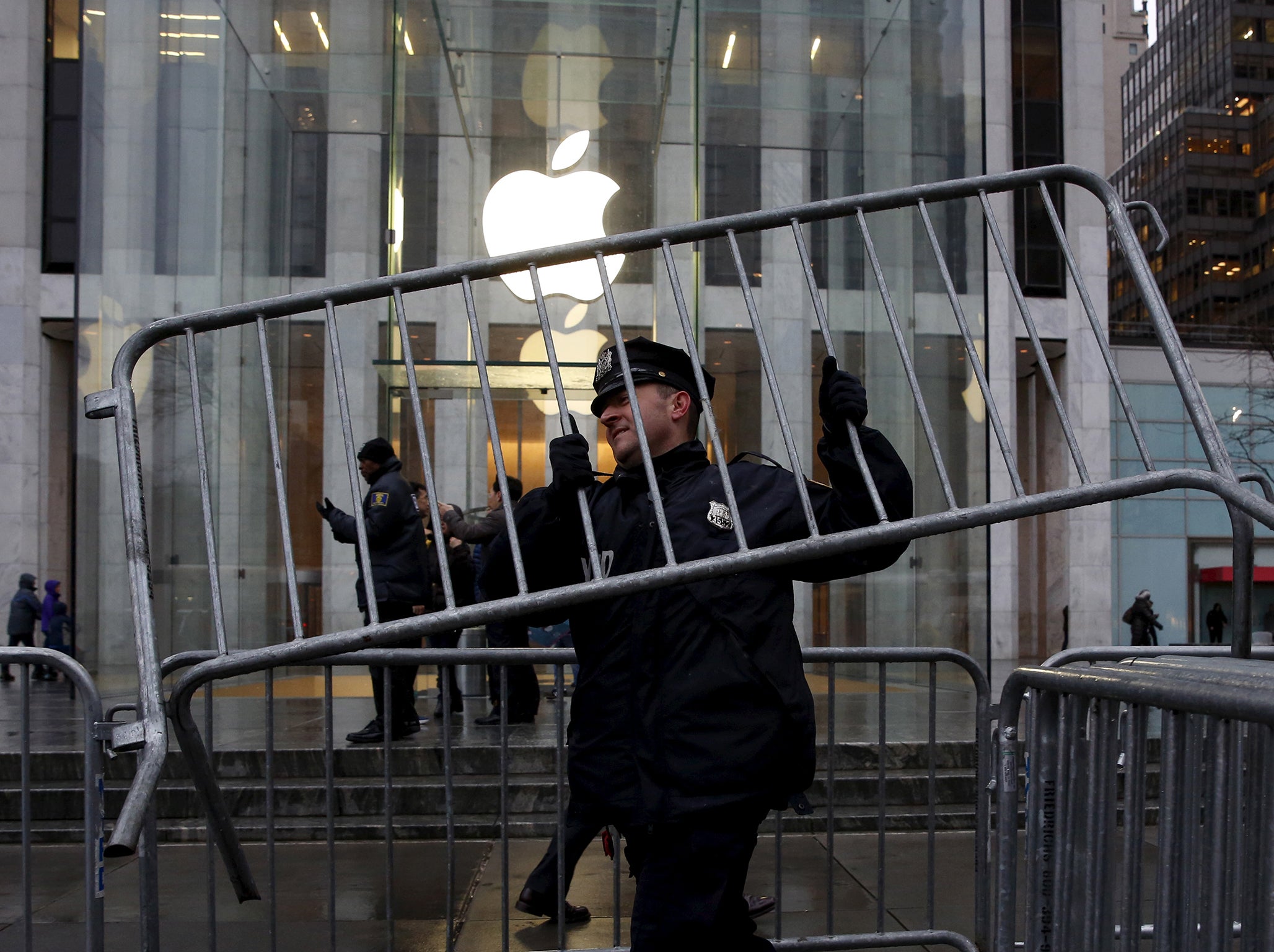iPhone 7 could be built specifically so governments can’t get access to its contents
Apple has been involved in a public and passionate feud with the FBI and the US government, over whether it should unlock a phone used by one of the San Bernardino shooters

Your support helps us to tell the story
From reproductive rights to climate change to Big Tech, The Independent is on the ground when the story is developing. Whether it's investigating the financials of Elon Musk's pro-Trump PAC or producing our latest documentary, 'The A Word', which shines a light on the American women fighting for reproductive rights, we know how important it is to parse out the facts from the messaging.
At such a critical moment in US history, we need reporters on the ground. Your donation allows us to keep sending journalists to speak to both sides of the story.
The Independent is trusted by Americans across the entire political spectrum. And unlike many other quality news outlets, we choose not to lock Americans out of our reporting and analysis with paywalls. We believe quality journalism should be available to everyone, paid for by those who can afford it.
Your support makes all the difference.Apple’s next iPhones could be engineered so that it would be impossible for governments to break into them.
The company is currently in a public and passionate feud with the US government and the FBI over whether it should help unlock a phone used by one of the San Bernardino shooters. Apple argues that it shouldn’t unlock the phone because doing so would weaken security everywhere and set a dangerous precedent.
But the company also hopes to stop such debates by making future phones unhackable, according to reports. It would mean that the only way that that US government could get access to phones is passing laws making it illegal to have such security measures.
It isn’t clear exactly how Apple could strengthen the phone’s security. But it could mean building the hardware specifically so that people can’t get access to the phone’s contents, and that Apple is unable to modify the phone in such a way as to overcome it.
The company has already added such systems to newer phones. Those that come with Apple’s TouchID fingerprint sensor, for instance — which the iPhone 5c in the San Bernardino case does not have — already store some of their most sensitive information in a “secure enclave” that is almost impossible to get access to without actually having the fingerprint of its owner.
But future updates could help install even more, similar features. They could encrypt the phone’s operating software so that it was impossible to make changes, for instance, and so that none of the data on the phone was accessible without the passcode or a fingerprint.
The new phones might also add new checks to stop them from being tampered with, too. The company was criticised earlier this month for its Error 53, which shut down phones if they thought that they had been changed, but similar features might stop the law enforcement from replacing parts of the phones and adding components that give them access to the information inside.
One potential weakness in existing handsets, for example, is a troubleshooting tool that is built into the phone and allows it to be updated without the user’s password. That was built to help Apple staff repair the phones, but it is the same tool that the FBI hopes the company can use to break into the phone used by the San Bernardino killer.
Apple is likely to fix that problem in future phones, according to experts. But it probably won’t be able to do so through a software update and so the weakness is likely to live on in older models.
The competing demands between Apple and the US government could mean that there will be an “arms race” as Apple looks to strengthen security and law enforcement and politicians try to stop them, according to experts. That will continue “until Congress decides to clarify who has what obligations in situations like this,” Benjamin Wittes, a senior fellow at the Brookings Institution, told the New York Times.
But Apple must also make a trade-off because encrypting and securing all information on phones and in its iCloud servers also makes it impossible for users to get hold of them in the event of problems. For all Apple’s commitment to security, it might find it hard to explain to customers that their personal photos have been lost because they forgot the password and its systems are so secure, experts said.
Join our commenting forum
Join thought-provoking conversations, follow other Independent readers and see their replies
Comments